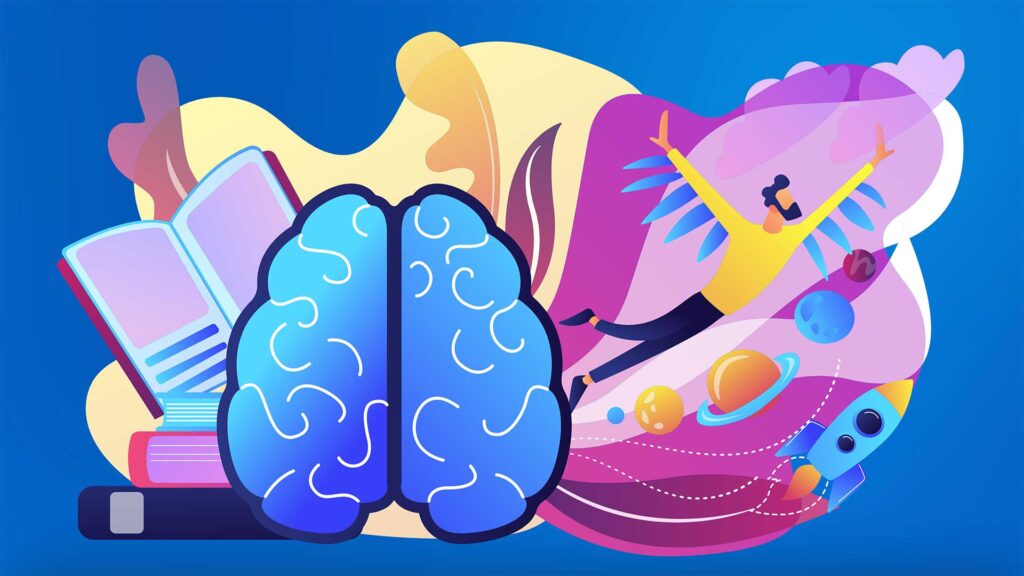
The greatest thinker of all time, Albert Einstein, famously stated, “Imagination is more vital than knowledge. Because imagination encompasses the entire world and all that will ever be known and understood, knowledge is confined to what we currently know and comprehend.” It’s possible for some People sometimes mistakenly assume that creativity is just the domain of idle daydreamers and naive idealists, but nothing could be further from the truth. Just ask any successful person, and they will suggest that imagination is essential to success in life. However, since our imaginations are influenced by our knowledge, imagination, and knowledge are interdependent. In this article let’s discuss in details about this interesting topic.
What is knowledge?
Knowledge is acquaintance with, knowledge of, or comprehension of someone or something, such as facts, descriptions, information, or abilities, which is acquired through experience or education through learning, observing, or discovering. Knowledge may be defined as theoretical or applied comprehension of a subject.
What is Imagination?
When inspiration is fueled by ideas, imagination is the in-between condition that motivates action. We aimed for the heavens and set foot on the moon. We have travelled across oceans in search of new countries. Everything began as a concept stored in people’s imaginations. The finest form of freedom is imagination, which no one can take away from us. The greatest scientific minds praise the magnificence of creative imagination.
How Knowledge and Imagination are interdependent?
Since our imaginations are influenced by our knowledge, imagination, and knowledge are interdependent. Additionally, our identities and environments have an impact on our imaginations. So, in a sense, it is true to argue that our imaginations are influenced by our past encounters.
Knowledge is crucial since it fosters creativity to a great extent. Brilliant minds would not be able to improve on the current problems without knowledge being shared. For instance, Bill Gates would not have created the Microsoft computer if he had lacked the computing knowledge that he learned from others through education. His intellect was fueled by the information he learned from other sources as he imagined and created the Microsoft computer.
Reasons to support the fact that Imagination is more important than Knowledge
Knowledge is Produced by Imagination
What we focus on multiplies, according to the Law of Attraction books we’ve read. Your thoughts from yesterday have led to the experiences you are having now. Without imagination, knowledge does not exist. Did you know that before practising for an event, Olympic athletes visualize the ideal outcome? In addition to physical training, many people use visualization to assist them win the gold.
Life Is Interesting Because of Imagination
Without the arts, music, cinema, and literature, what would life be like? Consider a world devoid of fairytales. Life would be so monotonous. Our imaginations are stimulated by artists who share their inspiration with us. Life is undoubtedly more exciting when we have imagination, whether it comes from our own creative works or the works of others.
Innovation is born from Imagination
Would we have today’s automobiles, aeroplanes, smartphones, computers, or buildings without imagination? Without imagination, would Elon Musk have created electric vehicles and rockets? Imagination is what gives us the ability to generate beautiful and practical ideas. Today’s cutting-edge technology is all the result of inventiveness. Like the laptop or mobile device you’re using to read this article, everything started as an idea in someone’s head before becoming a real, tangible thing.
Creativity Inspires Hope
There are ups and downs in life, and things don’t always go as planned—we don’t get the job, we fight, the debts mount up. But as long as we have our imagination, we can come up with answers and strategies for dealing with whatever challenges life hands us. Each of us is born with the ability to use imagination as a powerful tool. Use it to enhance your understanding and mould your world.
How can we help children use their imagination?
Our shared capacity for creativity is what distinguishes us as humans. Although we don’t have to teach it to our kids, we might be able to promote and support what’s already there. We may encourage pretend play, creative dreams, and the belief in unknowable things from a young age. For children, having a vivid imagination has several advantages. It can enhance their linguistic abilities, raise their emotional intelligence, and assist them in learning and remembering new knowledge. Additionally, the ability to think creatively is a necessary one for workers and future leaders.




